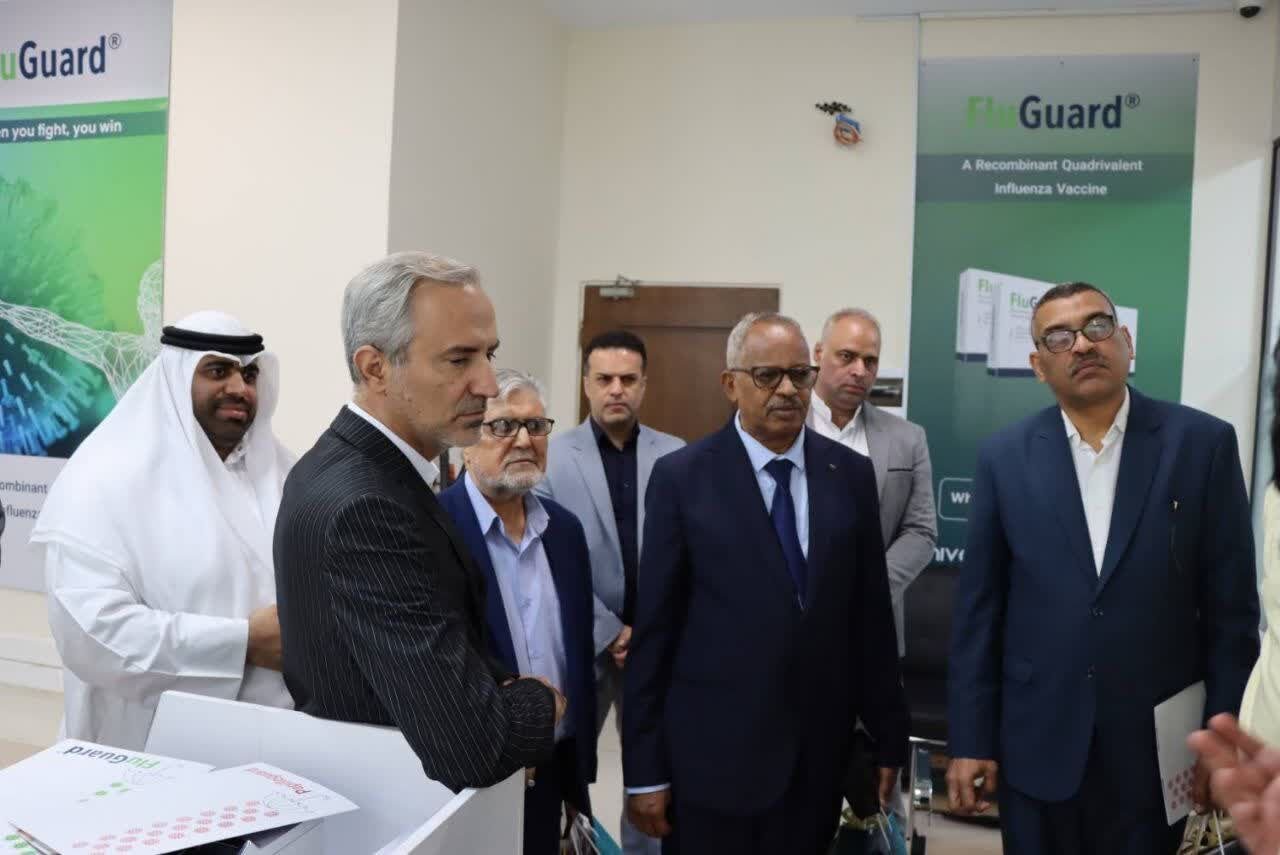Iran, Sudan to boost scientific co-op

TEHRAN – Head of Iran’s National Institute of Genetic Engineering and Biotechnology (NIGEB), Javad Mohammadi, and Sudanese ambassador to Tehran, Abdulaziz Hassan Saleh Taha, met on Monday to discuss ways for expanding scientific relations.
Paying a visit to NIGEB, Saleh Taha called Iran's progress in biotechnology and genetics fields amazing. “Iran's Institute of Genetic Engineering and Biotechnology can be a perfect scientific model for establishing universities as well as institutes in Sudan,” the official highlighted.
Sudan is seeking to enhance cooperation [with Iran] in treating illnesses such as cancer and infectious diseases, as well as exchanging professors and students. The country is willing to learn from your valuable experiences in the international scientific field, Saleh Taha further noted.
Mohammadi, for his part, said in line with the Islamic Republic of Iran’s policy to boost international cooperation in the field of scientific diplomacy, the institute welcomes scientific cooperation and interaction with other countries, particularly Islamic nations.
The NIGEB is affiliated with the International Centre for Genetic Engineering and Biotechnology (ICGEB), he highlighted.
During pandemics and outbreaks of various diseases in African countries, the research institute can collaborate with Sudan and other African countries to develop tools for the detection of the diseases and ways to control them, the official noted.
He also proposed conducting joint scientific projects, professors and students exchange in genetics and biotechnology science are other potential ways for boosting cooperation, Mohammadi added.
Khartoum seeks to deepen sci-tech ties with Tehran
In February, the Sudanese acting foreign minister stressed the need to develop scientific and technological cooperation with Iran.
“I am happy that Islamic countries such as Iran have made rapid advances in the field of technology,” Ali Al-Sadiq Ali said in a meeting with Amir-Hossein Mirabadi, former director of the Center of International Science and Technology Cooperation (CISTC), at Iran’s House of Innovation and Technology (iHiT) in Tehran.
“Nowadays, countries with low scientific productivity and power are not respected. Therefore, we should expand our knowledge and exchange experiences so that all Muslims can benefit from advancements in science and technology,” the Sudanese official added.
He went on to say that Sudan is a large country with a population of about 50 million. The country has vast areas of agricultural land. However, these resources cannot be utilized without the use of technology. “I hope the two sides would be able to develop cooperation in science and technology in areas of common interest.”
During the meeting, Mirabadi said there are many opportunities for cooperation in the field of science and technology between Iran and Sudan.
“The two countries can collaborate in various fields. Iran is interested in expanding technological cooperation with Sudan.
Some 10,000 knowledge-based companies, a large number of startups, and science and technology parks are active in our country, which provides a good capacity for cooperation with Sudan,” Mirabadi added.
Iranian companies are ready to cooperate with African companies. The two governments also agree on the necessity of technological cooperation, and Iran is well prepared for technology transfer to Sudan, he concluded.
National Institute of Genetic Engineering and Biotechnology
NIGEB was established in 1989 under the supervision of the Ministry of Science, Research and Technology. Since then, NIGEB has been given a mandate to undertake original, state-of-the-art research activities.
It was established with dual purposes of promoting research in avant-garde areas of biological sciences and biotechnology as well as providing advanced training and educational programs for scientists and students from other universities and academic institutions.
NIGEB is a pivotal hub for advancing the field of biotechnology in Iran, notable for its focus on multidisciplinary collaboration and ethical progress.
Impressively, they engage in both basic and applied research across various biotechnology sectors while considering the implications of technological commercialization and socio-economic impacts.
NIGEB’s commitment to global cooperation and knowledge sharing is essential, particularly in a domain as fast-evolving and globally connected as genetic engineering and biotechnology.
Their work not only propels the scientific community within Iran but also makes significant contributions to international efforts addressing complex issues in agriculture, industry, the environment, and health. This reflects a comprehensive approach to research and education in the field.
MT/MG
Leave a Comment